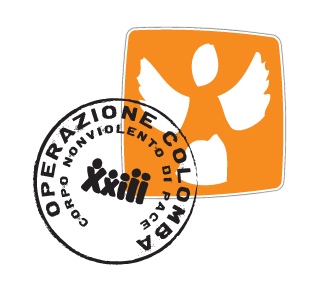Al Hadidiya – Exploitation of water resources in the Jordan Valley
A moving van.
Jerry cans slamming at every dip on the road.
The traditional headdress on the head.
Abu Saqr sets off to supply with water his family and livestock.
First checkpoint.
He stops.
Document check.
He takes off again.
A second, a third checkpoint.
Again.
Soldiers approach him, inspect the vehicle, check the barrels one by one, scrutinize his face.
The summer sun is already beating even though it’s still morning. 20 km.
Abu Saqr finally manages to refuel. But now the way back. The same story. Another 20 km.
Once at home, the family helps him to unload the cans and his wife awaits him with tea ready. Abu Saqr sits down and wipes the sweat off his forehead. Around their tent, the land is dry, barren. No trees, no retreat in the sultry days. The water will hardly be enough for his family and goats. Their well is unusable, but Israel does not authorize its repair.
However, the landscape nearby is atrociously different. From the tent, they see the settlement of Ro'i, shaded by lush vegetation. The land on which it stands was owned by Abu Saqr’s community. As well as the water that makes its plantations luxuriant. That green reopens the wound of the injustice suffered, every day.
Abu Saqr's house and sheepfold have been demolished several times over the years. Yet the family remains there, they rebuilt the house every time. 40km and harassment at the checkpoints just to buy water. They stay there. They resist there.
Proudly, in front of that blatant insult, every day, under their eyes.
Al-Hadidya is a Palestinian village in the northern Jordan Valley, where people live off agriculture and livestock.
The settlement of Ro'i was built on the village’s lands. The contrast between the two communities highlights the impact of the Israeli discriminatory policy and its exploitation of water resources in area C, in violation of international law. About 90% of the Jordan Valley is designated as Area C, with limited access to land and natural resources for Palestinian communities. Although it is a very fertile area, for decades Palestinians have suffered from water shortages. The communities struggle daily to conduct their agricultural and grazing activities and for their survival. Israel monopolized and exploited the water resources in the area, in some cases until exhaustion.
Much of the water extracted by the Mekorot Israel’s national company, especially in the Jordan Valley, is transferred to the settlements without restriction. One of the company’s pumping stations was built on al-Hadidiya land and supply the nearby settlements of Ro'i, Beka'ot, and Hamdat. Israeli policies and practices in area C, namely the building permit regime and settlements’ expansion, prevent Palestinians from accessing and developing their water resources. Not only it is nearly impossible to build new water systems, but the repair of existing wells is not allowed either.
In 2016 and 2017, Israeli forces demolished a water pipeline, a project funded by foreign organizations to bring water to the village. Al-Hadidiya residents, like most communities in the Jordan Valley, are forced to depend on tanks and rainwater. The water of the reservoir costs ten times that of mains water. To this burden are added the cost of transportation. While Al-Hadidya residents are deprived of their water sources, settlers run a fish farm and grow flowers, dates, and tomatoes.


 OPERAZIONE COLOMBA
OPERAZIONE COLOMBA
